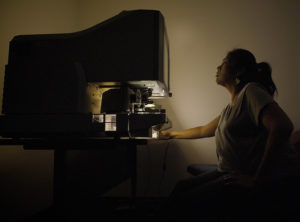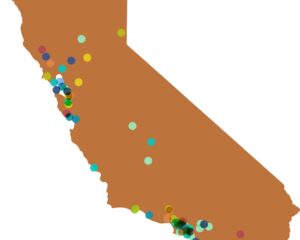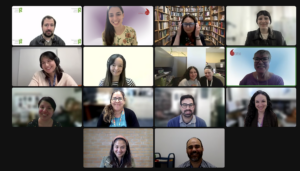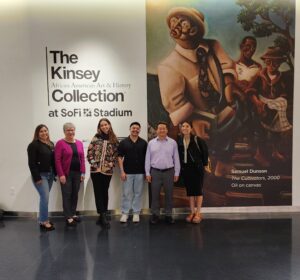In recognition of Earth Day, we highlight projects that support the sharing of Indigenous and contemporary Native culture. These recent California Humanities funded projects utilize the humanities to bring people together to learn about Native land history, cultural revitalization, identity, and reclamation.
The Re-mapping Project: Listening to California’s Land: Indigenous—Community Dialogues on Place

Guided by a committee of Native people, linguists, historians, geographers, and other humanities experts, the California Institute for Community, Art, & Nature’s Re-mapping project aims to restore Indigenous California place names to the human imagination, rejecting colonialism and embracing the beauty and connection to the deeper history of the land in which we live. Public discussions and events in locations across the state will engage local Indigenous culture bearers and non-Indigenous community members in exploring the meaning and understanding of place, as seen through an Indigenous cultural lens. The Institute shares that focusing on place as an entry into Native California – understanding land history, stories, living culture, and how it has been erased and harmed by colonization and genocide – will serve as a potent opportunity to protect Native cultures and educate the broader public about their existence and importance. This project is Supported by a Humanities for All Project Grant, click here for more information.
Telling Our Story: The People of Northern Los Angeles County
“Telling Our Story,”organized by the Fernandeño Tataviam Band of Mission Indians’ (FTBMI), promotes greater community understanding about the First Peoples of the land. The project includes multiple community discussions within the FTBMI and local community partners to build bridges with other audiences, centers narrative change, and uses a framework from the upcoming book release about the FTBMI. The book, the first of its kind, is a collaboration with local university professors and offers a glimpse into rarely accessed historical records and a socio-political analysis of the Tribe. Supported by a Humanities for All Quick Grant.
Contemporary Indigenous Voices of California’s South Coast Range: Enduring Relationships with the Land

Weaving together still photography, storyboards, and video interviews with in-person presentations, demonstrations, and discussions, this multifaceted project by BenitoLink highlights the voices of the contemporary native people of the South Coast Ranges of California. The project offers a series of programs in various locations throughout the region to engage Native and non-Native audiences. Community members will explore the importance of intergenerational relationships and their role in cultural revitalization as elders pass on their knowledge and wisdom to the next generation. In addition, culture bearers will share their connection to land and ecology and reflect on their experiences; expressing, relearning, and restoring their culture within a modern world that often denies their existence and heavily restricts their access to land. This project is supported by a Humanities for All Project Grant.
NIHUNAVEA: MY HEART, MY CENTER

NIHUNAVEA, an upcoming documentary film by co-directors Colin Rosemont and Sandra Hernandez, bears witness to the complex struggles of reclaiming Native California Indian cultural heritage, spirituality, and Tribal Sovereignty. Set shortly after the Tejon Indian Tribe’s decades-long struggle for sovereignty through Federal Reaffirmation, Sandra Hernandez—an enrolled member and elected official of the Tejon Indian Tribe—forges a path through government agencies, museum institutions, & academia as she works to revitalize the Kitanemuk language, repatriate artifacts, and strengthen the foundational core of her Native identity: family & community. Supported by a California Documentary Project Grant, this is not a historical film, but rather a documentary that takes as its subject the contemporary legacy of a haunting past. Click here for more information.
Native Voices

A collaboration with members of the local Yokuts community, the Three Rivers Historical Museum, and the Mineral King Preservation Society, this project develops a new interpretive exhibit about local Native history. Using objects in the museum’s collection and informed by the knowledge of the last fluent speaker of Wukchumi of the Tule-Kaweah Yokuts, the exhibit will show how Native peoples traditionally lived and worked the land, how European settlement impacted them, and how they live today. Public programs include, “Native Voices Day,” which brings culture bearers from local tribes to the museum to share traditional cultural knowledge, demonstrate basketry and games, and provide beginning lessons in the Wukchumi language. Located on the main highway to Sequoia National Park, the exhibit will be accessible to thousands of visitors and locals on an ongoing basis. This project is supported by a Humanities for All Project Grant.




